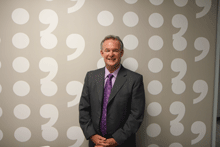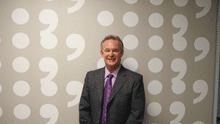Government still lags in earning trust among citizenry

The 2012 Edelman Trust Barometer, a global survey, has measured a nine-point global decline in trust in government. In 12 countries, government trails business, media, and non-governmental organizations as the least trusted institution.
Political brinksmanship on the debt ceiling in the United States, dysfunction on bailouts in the European Union, corruption in Brazil and India, and a natural disaster in Japan drove the downward trend.
Those are some of the findings from the latest survey. The 2012 Edelman Trust Barometer examined trust in four key institutions — government, business, media and NGOs — as well as communications channels and sources. This is the 12th year of the study.
The survey was produced by research firm StrategyOne and consisted of 20-minute online interviews conducted from Oct. 10 – Nov. 30, 2011. The online survey sampled 25,000 general population respondents with an oversample of 5,600 informed publics in two age groups (25-34 and 35-64) across 25 countries. All informed publics met the following criteria: college-educated, household income in the top quartile for their age in their country, read or watch business ⁄ news media at least several times a week and follow public policy issues in the news at least several times a week.
The 2012 Barometer summary noted: “Throughout the world, people blamed their governments — more than any other institution — for the financial and political crises they endured in 2011. In 17 of the 25 countries surveyed, government is now trusted by less than half to do what is right.
The summary noted that trust in government held steady in a number of countries. “Germany, though well below the midpoint, stayed firm at 33 percent, while India cleared the midway mark (53 percent) for the first time. In the United States, trust remained stable despite all the political discourse. Singapore registered the third-highest government trust level at 73 percent.”
“Trust starts with delivering on promises,” said Rob Rehg, Global Chair of Public Affairs at Edelman, a public relations firm with 65 offices and more than 4,400 employees worldwide. The company is co-headquartered in Chicago and New York. “For government officials to regain any appreciable level of trust, they must prove they are capable of working together and taking action on big societal challenges. The public believes the political process is broken and politicians are incapable of overcoming their differences to deliver results. Divided government doesn’t have to mean dysfunctional government.”
Elected officials need to strike a balance and meet halfway in their negotiations, added Rehg. “People everywhere are constantly dealing with problems at home or work that require compromise for the sake of progress. But our elected leaders for several years now seem incapable of finding common ground and landing on a consensus plan. Whether it’s tax policies and cutting deficits, or making infrastructure improvements and landing on a sensible national energy policy, the outcome is always loud debate without resolution or progress. Trust scores for politicians will remain low until they finally get back to putting people first.”
The survey analyzed attributes that build trust. For business organizations, the survey looked at 16 attributes. For government agencies, the survey looked at eight. Both institutions, the report noted, “show performance gaps, but the gulf is wider for government, which appears to be falling short on policy and execution.” The survey reported that governments had double-digit gaps in environmental protection, sound fiscal management, and frequent and honest communication.
Despite the fact that in all but one of the countries surveyed (Singapore), government leaders are less trusted than their business counterparts to tell the truth, nearly half of global respondents still want more government regulation of business.
Go
here for a report on trust levels in local government.




















